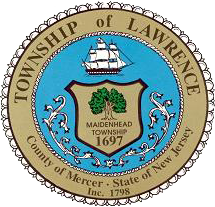Deck/Patio
Common Construction Projects
- Instructions
- Application Process
- General Information Required
- Application Forms
- General Inspection Requirements
- Useful Terms & Definitions
- Fees
- Progress Checklist
[Information and instructions provided here pertain to most common decks/patios, which do not involve electrical wiring or gas piping for grills.]
General Information Required – Deck/Patio
- Two (2) copies of Construction Plan*: Architectural design of proposed deck/patio developed and drawn either by an NJ certified professional (NJ License #) or by the homeowner with all dimensions and material specifications.
- Three (3) copies of Zoning Approval (Zoning approved Property Survey with location and dimensions of Proposed Deck/Patio)
- One (1) copy of Permit Request Form
- One (1) copy of contract with deck contractor indicating value of proposed work
- One (1) copy of Application for Certificate
- One (1) copy of Certificate with Identification section filled
*Construction Plans must be drawn by a homeowner or licensed architect. If drawn by an architect, the plans must be signed and raised seal. Three copies of construction plans must be provided to the Construction Department for review. One copy will be returned to the applicant. Homeowners drawing their own plans must have the declaration "personally prepared by ....." with homeowner’s signature. Homeowners also must check part “B” on the inside of the Construction Permit Application (CPA) folder and sign the affidavit below on the inside of the CPA folder or their plans may not be accepted for review. It is illegal for builders/contractors to draw construction plans as they are not licensed or insured to do so.
Application Forms – Deck/Patio
[In all cases of plumbing or electrical projects where a contractor is hired, EACH copy of the permit application must have the raised seal of the contractor.]
General *Inspection Requirements – Deck/Patio
1. FOOTING - inspector will check size and depth of hole BEFORE concrete is poured.
2. FRAMING - inspector will check all structural attachments including bolts and framing BEFORE decking is installed.
3. FINAL - inspector will check handrails, guardrails, and stairs (if required.)
*Additional special inspections for electrical or plumbing will be required if deck includes wiring or plumbing for electric lighting/grill or gas grill.
Useful Terms & Definitions – Deck/Patio
Deck
An exterior floor system supported on at least two opposing sides by an adjoining structure and/or posts, piers, or other independent supports.
Guardrail
A rail system installed along all open sides of a deck to protect people against falling down
Handrail
A horizontal or sloping rail intended for grasping by hand for guidance or support.
The state allows each municipality to adopt their own fee schedules based on the actual costs incurred. The fee schedule is monitored annually by the New Jersey Department of Community Affairs to ensure the fees are not excessive and are adequate to cover appropriate costs.
The cost of a permit is set by township ordinance available at the township Construction Office.
For the successful completion of your project, in addition to general guidance and information in this section, The Construction Department reserves the right to ask for any specific information or clarification unique to your project.
